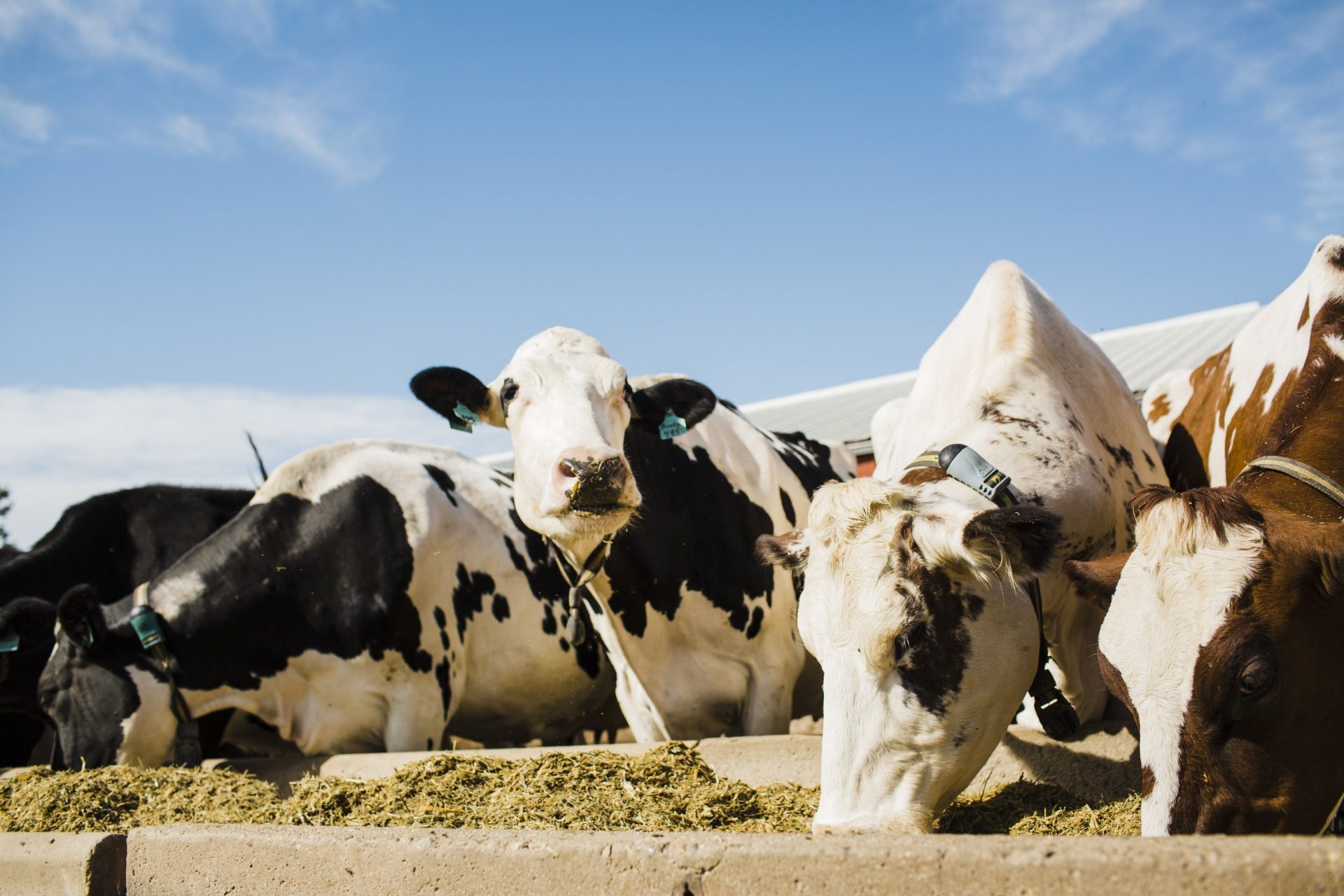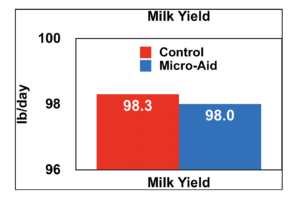
High-Producing Dairy Cows Supplemented with Micro-Aid® or Rumensin® Perform Similarly
In this 16-week lactation study, multiparous Holstein cows were assigned to either the Rumensin® (350 mg of Rumensin®/cow/day) or Micro-Aid® (2 g of Micro-Aid® Feed Grade Concentrate/cow/day) treatment. Rumensin® (avg. = 112 cows/pen/day) and Micro-Aid® (avg. = 140 cows/pen/day) cows were housed in separate pens in a freestall barn with ad libitum access to a total mixed ration (TMR) and water.
Parameters monitored throughout the study included: Daily pen dry matter intakes (DMI), daily milk production, milk fat, milk true protein, milk urea nitrogen (MUN), and milk fatty acid composition.

- The milk yield and milk components of cows from this high-production commercial dairy were similar for cows consuming either Rumensin® or Micro-Aid®. Micro-Aid®, an all-natural feed technology, is an effective alternative to Rumensin®.
- Throughout the entire study, cows on both treatments maintained an acceptable daily DMI, which is essential for high milk production. However, DMI was higher for cows consuming Rumensin® than those consuming Micro-Aid®. The collective results of DMI and milk yield response translate to better milk production efficiency for cows fed Micro-Aid®.
- Compared with cows consuming Rumensin®, dairy cows consuming Micro-Aid® in this study had equally high production performance. Older cows fed Micro-Aid® tended to have lower MUN and higher milk true protein content. There was an increase in preformed fatty acids in milk from cows fed Micro-Aid®. These two observations indicate the potential for Micro-Aid® to improve efficiency of protein utilization. Previous in vitro research has consistently demonstrated a positive effect of Micro-Aid® on rumen microbial protein yield, which has a more ideal amino acid profile than most feed protein.
- When farm profitability is considered using the Micro-Aid® Value Proposition Model, this study demonstrated that the positive impact on net farm income due to treatment responses of milk yield and components was comparable between Micro-Aid® and Rumensin®.

